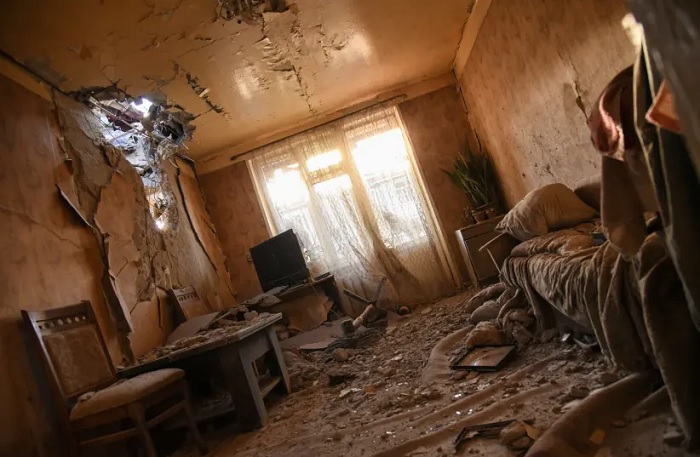
Iran is growing increasingly concerned about the fighting between Azerbaijan and Armenia and Armenia and has continued to issue statements and escalate rhetoric.
Iran initially said it would be open to help mediate, but its anger has grown as it judges that Russia, Turkey and Azerbaijan are not listening. Iran now warns of a regional war after Syrian leader Bashar Assad accused Turkey of instigating the war and sending fighters.
Iran’s government spokesman Ali Rabiei said on Tuesday that Iran was following the clashes on the other side of the border closely and that while Tehran supports Azerbaijan’s rights to “territorial integrity,” it does not believe military means are the right way to go. Iran wants the fighting to stop as soon as possible.
So far, more than a week of clashes has seen hundreds of casualties, shelling of civilians on both sides and the use of modern weapons such as missiles and drones.
Iran is concerned because the fighting is close to its border and has also led to protests by the Azeri minority in Iran. Iran is closer to Armenia, but wants trade and peace with its neighbors in this area, according to Tehran’s statements.
Iranian President Hassan Rouhani increased the rhetoric on Wednesday as Iranian media said that local armed clashes could become a “regional war” and that Iran is ready to help resolve the dispute. Iran says it wants to adhere to international law.
The dispute in Nagorno-Karabkah dates to the Soviet era. The area is inhabited by Armenians but is part of Azerbaijan. In the 1990s, Armenian forces came to control it and other areas of Azerbaijan and created a self-declared republic next to the Armenian republic. Azerbaijan wants the area back and has said it has waited too long for a peaceful resolution.
Iran has balanced its statements in order to continue to working closely with Azerbaijan President Ilham Aliyev, and Baku has promised Tehran the fighting will not spill over. Azerbaijan has been careful not to target Armenia itself in the battles, but, rather, the forces of the Artsakh republic in Nagorno-Karabkah.
However, escalation means that missile attacks could increase in Azerbaijan and that Turkey and other states would then try to increase their involvement. Turkey sent its foreign minister to Baku, and Russia is closely following developments. Turkey’s Foreign Minister Mevlut Cavusoglu said he went to show his support for Turkey’s “brothers” in Azerbaijan. Turkey wants the conflict to continue.
Syria also upped its rhetoric against the conflict, accusing Turkey of being the “main instigator” of the fighting. It also says that Turkey is sending what Iran calls “takfiri” fighters. Those are the extremist Syrian mercenaries, formerly Syrian rebels, whom Ankara has hired to fight in Libya and now Azerbaijan. Azerbaijan denies the fighters have been deployed. Video evidence appears to show they went to fight. Syria’s regime accused Turkey of “scandalous relations with ISIS in Syria.”
Rouhani agreed with these statements and argued that terrorists were being brought near Iran’s border. He did not specify, but it appears his comment also relates to Turkey sending mercenaries, whom Iran views as terrorists. Iran is being diplomatic to avoid a spat with Turkey.
Tasnim News in Iran also said that bullets from fighting had strayed across the border, and Azerbaijan had apologized for the spillover.
The context of the Iranian comments shows how concerned Tehran is. It does not want more instability on its borders, and has worked to spread that instability far from home so that it destabilizes Yemen, Lebanon and other places, but does not allow these conflicts to eat away at its own borders. It wants weak neighboring states, not strong ones.
Iran’s assessment is that if Azerbaijan and Turkey become closer allies fighting Armenia, then Iran might one day have to deal with this issue on its border, rather than playing the wise, diplomatic peacemaker.
 Eurasia Press & News
Eurasia Press & News



